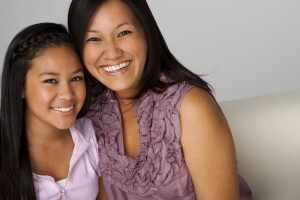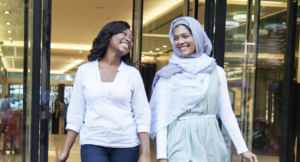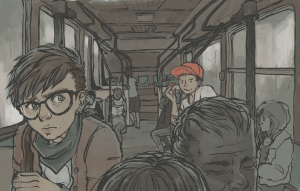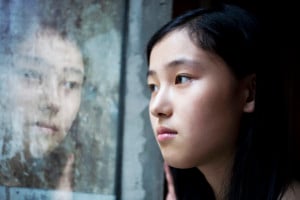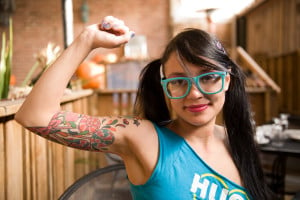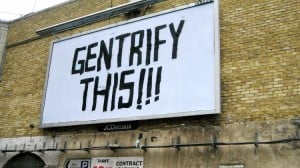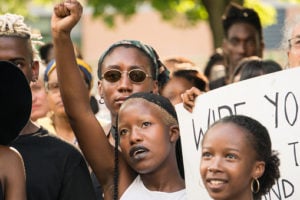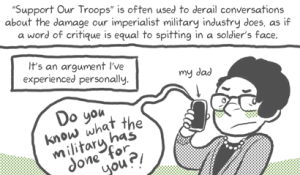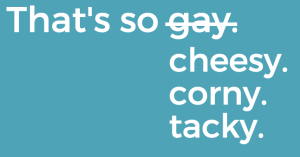Anyone who’s used a ride-sharing service can probably relate to the discomfort of having unwanted conversations with other people in the car.
This has happened to me several times, but one of the most memorable conversations I had was with a white driver who asked, “So is it just me, or are a lot of Asian parents super strict?”
I didn’t want to get into what would no doubt be an exhausting conversation about stereotypes, so I just said, “I don’t think every Asian parent is strict.”
Unfortunately, that wasn’t the only time that someone has said something similar to me. When I was in college, people would assume that I was a biology major, yet another aspiring doctor doing what my parents wanted me to do.
It’s irritating. More than that, it’s racist.
Assuming that every Asian parent is strict means that, for some reason, you think a diverse group of people, composed of many different ethnicities, are all the same.
Is it true that many Asian parents want their children to be doctors, lawyers, or pharmacists? Certainly some of them do.
But not every parent wants that for their child, let alone forces them to choose that path. And the parents who do push the medical or legal path don’t do it because their Asian-ness makes them inherently strict.
I mean, that’s pretty ridiculous, right? There’s no gene that makes people strict. And there’s no cultural background that makes some parents better than others, regardless of what Amy Chua and her “Tiger Mom” nonsense might claim.
Yet the stereotype of the strict Asian parent persists, perpetuated by people’s assumptions, flawed sociology (like the one Chua employs), and even fictional media.
It’s not the only stereotype out there about Asian parents. There are others, like the ones that paint Asian parents as traditional, culturally backwards, and bad at English.
Stereotypes About Asian Parents’ Attitudes Towards Queerness
As if it’s not bad enough that Asian parents are stereotyped as culturally backwards, they’re also stereotyped as being unanimously unaccepting of queerness.
This is not true.
My parents have been accepting of my queerness. We don’t talk about it a lot, but they ask me how my partner is doing and welcome her whenever she visits their house.
And they’re not an anomaly.
Here’s a Buzzfeed video featuring four stories about LGBTQIA+ Asian Americans and their parents, and here a few narratives from LGBTQIA+ Asian Americans (and their parents!) who’ve come out to their families.
Of course, there are also parents who don’t accept queerness, and that’s incredibly painful for their children. It’s not my intention to dismiss that pain, nor to argue that Asian parents who are homophobic should be excused.
My intention, instead, is to explain why it’s harmful to perpetuate racist stereotypes about why Asian parents are homophobic.
Besides, my point isn’t whether or not Asian parents accept their queer children. My point is that it’s racist to make a sweeping generalization about that acceptance, or lack of it.
Saying that all Asian parents reject their queer children is the same as saying that all Asian parents think and act the same way. But how is that possible? They’re people, not a bunch of identical automatons.
Think about it this way: some white parents accept their queer children, and some don’t. But nobody assumes that they’ll know how a white parent will react because “all white parents act a certain way.”
That’s because racism teaches all of us that white people are just that — people. Their race is invisible. White people aren’t expected to act the same as other white people because they’re individuals, and individuals are diverse in their thoughts and actions.
Asian people, on the other hand, are seen as an anonymous mass whose thoughts and actions are dictated by their race. They don’t get to be individuals. In other words, they don’t get to be people.
Can you begin to see why that’s problematic? Or rather, racist?
If you reduce Asian people to stereotypical caricatures, it’s easy to justify exclusionary laws and even violence against them.
Not only that, but blaming Asian parents for their supposed homophobia scapegoats them. It blames them (and their “cultures”) for homophobia, thereby deflecting attention from the larger social and institutional forces that oppress queer people.
Sure, not everyone who believes the stereotypes about strict, traditional Asian parents wants to harm them. But it’s important to understand that even if they don’t, by believing them they are implicitly justifying that harm.
That’s why it’s important to debunk stereotypes about Asian parents. In the following sections, I’ll be debunking some common myths about Asian parents’ attitudes about queerness. I’ll talk about why they’re not true, as well as how they perpetuate racism.
Because while it’s important to fight against homophobia, it does more harm than good when you fall into racism while doing so.
Myth #1: Asian Parents Are ‘Traditional’
Whenever I hear people talk about “traditional” Asian parents, it’s usually in the context of dating and relationships.
“Traditional” Asian parents don’t want their children to date outside of their ethnicity. “Traditional” Asian parents expect their children to marry and have children.
Sometimes it seems as if this supposed tradition is nothing more than an elaborate set of rules dictating who Asian people are allowed to date and marry. Apparently, somewhere in these rules is a prohibition against queerness.
To me, “tradition” is a ridiculous concept. The word implies that there’s a static set of beliefs and customs that Asian people pass down from generation to generation.
I always have to wonder why anyone thinks that’s plausible. How can one set of beliefs and customs pass unchanged from antiquity until now?
Also, how can all Asian Americans share a common “tradition?” There are many ethnic groups represented under the umbrella term of Asian American. We don’t all share the same beliefs and practices.
And even if a group of people share common beliefs and practices, that doesn’t mean that everyone in the group subscribes to those beliefs and practices.
Nor does it mean that everyone thinks of those beliefs and practices in the same way.
The concept of “tradition” doesn’t hold water when you start asking questions, does it?
Sometimes tradition is used to “compliment” Asian Americans, like when people say that strong traditional values are the reason why Asian Americans are economically and academically successful.
Other times tradition is used to accuse Asian Americans of being conservative about issues such as queerness.
Either way, calling Asian people “traditional” is a thinly veiled way of saying that they’re culturally backwards.
It implies that Asian people haven’t changed in several thousand years — and that’s racist.
How can complex and three-dimensional human beings never change in their beliefs and customs? There are plenty of Asian parents who are willing to learn about queerness. Everyone is capable of change.
The only way you wouldn’t believe that is if you believe that Asian people aren’t people, but rather one-dimensional and static stereotypes.
Besides being racist, using “tradition” to explain some Asian parents’ attitudes about dating and marriage is just a way to obscure the real reasons behind those attitudes.
If an Asian parent is homophobic, it’s not because of tradition. It’s because they’ve learned homophobia from mainstream American society — but I’ll get to that in a little bit.
Myth #2: Homophobia Is Unique to Asian Communities
No, no, and no.
This myth is related to the one about tradition.
Citing tradition as the reason for Asian parents’ supposed conservatism about queerness implies that homophobia is unique to Asian people.
It’s often white queer people who perpetuate this stereotype, not just about Asian people but about all people of color. Remember when Dan Savage blamed Black voters for Prop 8’s passage?
The thing is, I’ve met plenty of white people who were uncomfortable with my queerness, like the person who would leave a room whenever my partner and I were in it — even if we were just talking.
And all the people who’ve harassed my partner and me if we show any affection in public? They’ve been white men.
So when queer white people act as if only Asian people are extremely conservative about sexuality (and bring up how homophobic Asian countries are as “proof”) I get really annoyed.
I mean, first of all, that’s racist.
I keep saying this over and over, but I want to drive the point home. You can’t make sweeping generalizations about a community if you’re not part of that community.
Second of all, I’d like to point out that it’s not people of color who passed legislation that (used to) ban same-sex marriage and who continue to deny LGBTQIA+ people other rights.
That would be the overwhelmingly straight, Christian, white men blaming Asian parents and other people of color
I understand why people scapegoat, I really do. It’s easier to blame a relatively small group of people than to face the fact that there’s a much larger, much more insidious system of oppression at work.
But when you do that, you let the system keep working — just like it wants you to do.
Myth #3: Asian Parents Don’t Understand Queerness
This myth might seem benign on the surface. It seeks to explain Asian parents’ supposed rejection of their queer children by saying that they don’t have the terminology or framework to talk about queerness.
Unpacking this myth is a little tricky. On the one hand, immigrant parents and their children will have trouble communicating about queerness if English isn’t the parents’ first language and the children don’t speak their parents’ language.
On the other hand, the English words we use to talk about queerness (such as “queer” itself) might not have an equivalent in Asian languages because the way we understand queerness in the West isn’t the way people in other parts of the world understand it.
But just because other cultures don’t understand queerness in the same way that Western cultures do doesn’t mean that they don’t understand it at all.
In other words, it’s total bullshit to think that Asian parents don’t know that queerness and queer people exist.
It’s dangerously self-centered to think that queerness is something that only exists in the West. Believing that means that you either erase queer Asian Americans or assume that queerness is something they learned from white people.
Which is totally ridiculous. White people didn’t invent queerness.
It’s more accurate to say that what Asian Americans and their parents did learn from white people is mainstream conceptions of gender and sexuality.
We imbibe heterosexism and homophobia from mainstream American society, just like everyone else does.
And whatever constructions of gender and sexuality existed in Asian communities before Western imperialism are now gone, because white people quashed them to make way for their own constructs.
I’m not saying that all gender roles and concepts of sexuality in Asian communities come from white people, nor that all Asian communities think of gender and sexuality in the same way even now.
But I am saying that there’s an undeniable influence that comes from Western imperialism in Asian countries.
Claiming that Asian parents don’t understand queerness erases that history of imperialism.
It takes culpability away from white people and, once again, places all the blame on Asian people.
***
I’m not writing this article to excuse homophobia in the Asian American community, whether it comes from parents or the younger generation. It’s there, and it’s a problem.
However, writing homophobia off as part and parcel of “tradition” or lack of understanding is harmful.
There are a lot of complicated reasons why homophobia exists among Asian parents, and it’s harmful to simplify them into stereotypical explanations.
For one thing, it’s racist.
For another, it obscures the systemic oppression of queer people. That systemic oppression was not created by Asian people, nor is it perpetuated solely by them.
Lastly, perpetuating racist myths isn’t going to change the homophobia among Asian parents.
Queer Asian Americans are already doing the work to address homophobia within the community. Organizations like API Equality-LA and Visibility Project are reaching out to people within the Asian American community to raise awareness about LGBTQIA+ issues.
Rather than scapegoating Asian parents, it’s important to learn why stereotypes about them being strict and traditional are racist — and then to start thinking about the deeper reasons why oppression against queer people exists.
[do_widget id=’text-101′]
Kerry Truong is a Contributing Writer for Everyday Feminism. They are a queer diasporic Vietnamese womxn and graduated this spring with a double degree in English and Asian American Studies. When they’re not philosophizing about this at length, they’re reading, taking long walks, or cooing over all the dogs who cross their path. Read their Everyday Feminism articles here.
Search our 3000+ articles!
Read our articles about:
Our online racial justice training
Used by hundreds of universities, non-profits, and businesses.
Click to learn more


